Refrigeration, Air-Conditioning, and Heat-pumps (RACHP) are crucial for our health, nutrition, comfort, and well-being. It is one of the sectors that crosscuts many of the UN sustainable development goals and can contribute significantly to safeguard the environment, advance welfare of humanity and support the growth of employment and economics worldwide.
Over 15 million people are employed worldwide in the refrigeration industry, which means that almost 5 workers out of 1000 have a job linked to the design, manufacturing, installation, maintenance and servicing of all type of refrigeration equipment. Women engagement in this sector is either under-represented or un-recognized around the globe despite of the high potential that can be unleashed by encouraging women to pursue education and job opportunities in RACHP.
The RACHP sector is fast expanding: There is a need for more and more equipment and applications, and thus more people adequately qualified all over the world. Because of environmental constraints, innovations are necessary. There is a remarkable opportunity to develop interesting and numerous jobs for woman in the context.
Understanding the issue
The International Institute of Refrigeration (IIR) and the OzonAction of UN Environment Programme (UNEP) in cooperation with several partners, undertook a global survey to better understand the background, motivation, challenges, and opportunities faced by women working in the in refrigeration, air-conditioning and heat pumps sector.
In total 810 women from all continents responded to the survey, which was available in seven languages (English, French, Spanish, Portuguese, Russian, Arabic and Chinese). Overall, 59% of the respondents were under 40 years old and half had a postgraduate degree, indicating likely limitations in reaching women working in the field as technicians. The current job roles are illustrated in Figure 1 and survey results indicate a high retention rate in the industry with 47% of women working in the RACHP sector for more than 10 years.
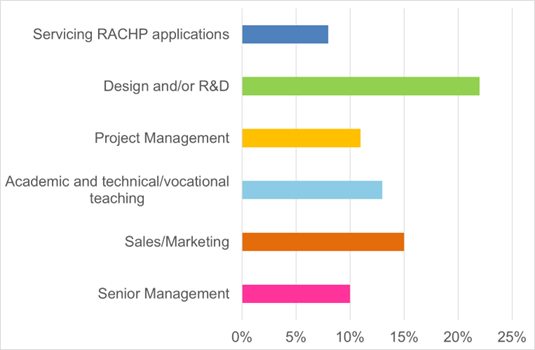
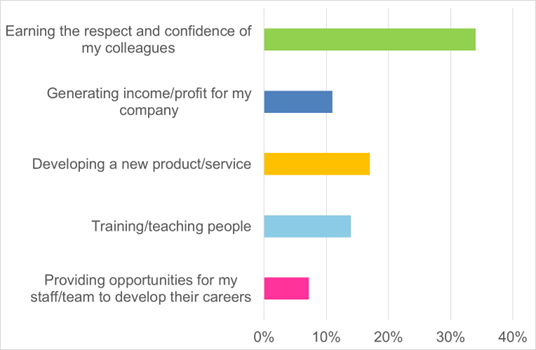
The top five challenges identified were (1) difficulties in managing a healthy work-life balance, (2) lack of career advancement opportunities, (3) stereotypes or prejudice about women from clients or customers, (4) no other female colleagues in their organisation and (5) limited training opportunities to further develop their skills. Challenge (1) can be potentially overcome if companies adapt their HR policies, for instance by allowing flexible working hours and remote working where possible as well as fair pregnancy and maternity leave policies. The limited training and career development opportunities in the sector is a wider issue that will require national organisations and industry to work together on a solution.
Women are mostly motivated by the environmental impact of a career in RACHP, the feeling of carrying out work that is useful to society, the fact that is an interesting subject area, the diversity of roles available and the job security associated with the sector. Figure 2 shows the most proud career achievements of women working in the sector.
Role models are paramount to highlight the career opportunities in RACHP and inspire the next generation of engineers. Sharing similarities (such as ethnic background, disability, sexual orientation, educational background or hometown/country) can help role models and younger people more easily relate and connect with each other. Nearly half of the women that responded to the survey had no role model, and the ones that had belonged to one of the following categories: someone working on the RACHP sector, teacher or family member. Mentoring schemes are also key to promote both personal and professional development for both the mentee and the mentor as well as increasing productivity, inclusivity and retention rate for organisations. The survey indicated that 52% of women had a mentor in their current job. Overall, the survey results show that there is clear scope to increase the visibility of women working in the sector by promoting role models and mentorship programs that benefit both individuals and organisations. Increasing awareness of women in RACHP will also help break stereotypes and prejudice against women and empower women and girls to pursue a career in this sector.
Impact of women steering groups
Worldwide there over 300 national, regional, and international associations, organisations, and institutions in the RACHP sector. A small minority of these organisations have women steering groups, which engage and empower women through networking, mentoring, nomination for awards and industry judging panels. These steering groups normally have a strong social media presence, thus shining a spotlight on role models and carry outreach to schools, promoting careers in STEM to young people. Available data suggests that when national organisations have dedicated women steering groups, their female membership increases considerably and women became actively involved in committees, thus increasing women equality in decision-making.
Advocating for better engagement
UN Environment Programme (UNEP) OzonAction, in cooperation with many international RACHP partners, has been highlighting the issue of importance of gender mainstreaming as well as promoting women’s active and equal engagement in the Montreal protocol work for many years. Many activities in this area focus on the RACHP sector because this sector is an inseparable part of the Montreal Protocol HFCF phase-out and future HFC phase down projects.
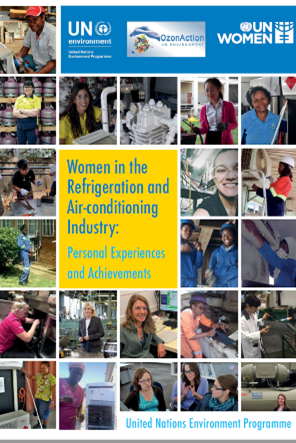
The first attempt to highlight success stories of women in RACHP sector was a publication “Women in the Refrigeration and Air-conditioning Industry – Personal Experiences and Achievements”. This booklet compiles 107 stories from 50 countries and provides important information and experiences that bring insight into the lives of women working in the refrigeration and air-conditioning sector around the world.[1]
In the summer of 2020, the UNEP OzonAction team in Panama developed a series of interactive webinars on the Montreal Protocol on Substances that Deplete the Ozone Layer and gender mainstreaming. National Ozone Units in Latin America, Europe and Central Asia, West Asia and Anglophone Africa heard personal stories from women RACHP professionals in their regions and discussed relevant issues such as importance of awareness-raising for female technicians and capacity-building activities. [2]
As part of World Refrigeration Day campaign in 2021, OzonAction and the partners organised the webinar “Inspiring Women to Pursue Careers in Refrigeration and Air-Conditioning & Heat-pumps (RACHP)”. This session shed light on how women can be further inspired and supported to have larger stake in the RACHP industry and the related professions. The session addressed the topic from three aspects: the educational aspect, the field operation aspect, and the technical societies aspect. [3]
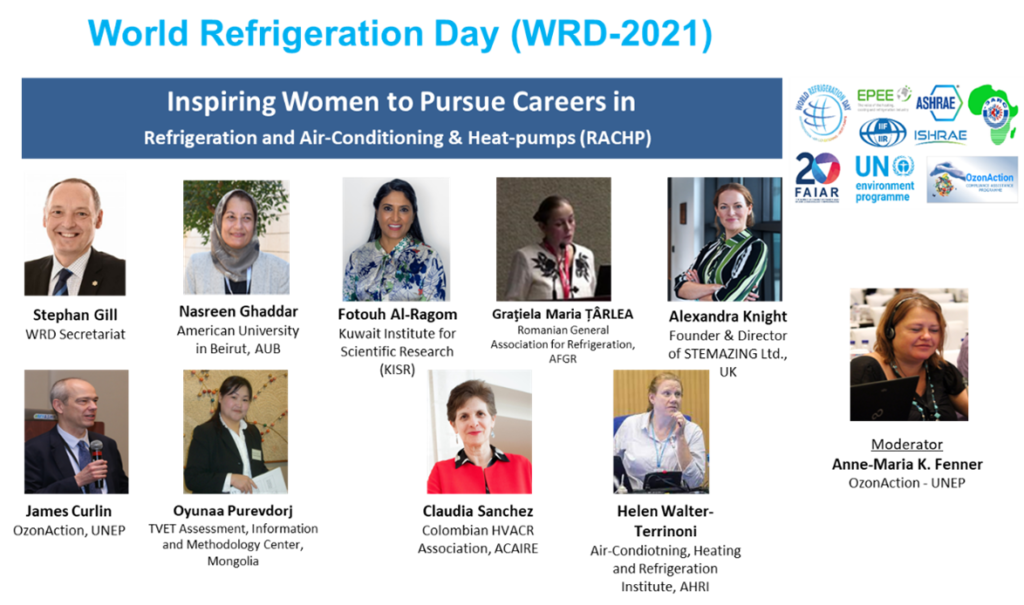
More recently, in July 2022, UN Environment Programme (UNEP) OzonAction organized a side event on “Women in Cooling – Challenges and Opportunities”[4] during the forty-fourth meeting of the Open-ended Working Group of the Parties to the Montreal Protocol. The meeting was attended by 93 participants (55 females / 38 males) and included presentations on context and challenges, as well as on opportunities to increase involvement of women in this field. The presentations were followed by panel discussions of National Ozone Officers from different regions (Asia, the Caribbean and Africa).
The panel discussion highlighted the same main challenges identified by the global survey: ‘She studied refrigeration and AC and works at RAC company but only does admin work. Women are given easy jobs while men are doing the technician work’, ’there is only one female in the team’, ‘in some countries, according to local culture, it is not a ladies job’, ‘many female technicians had to quit work after having children’. At the same time, it is perceived that social media platforms can help spread the word for the next generation, who are so open to a different life (compared to their parents). After COVID, many females are seeing RACHP as a viable job opportunity.
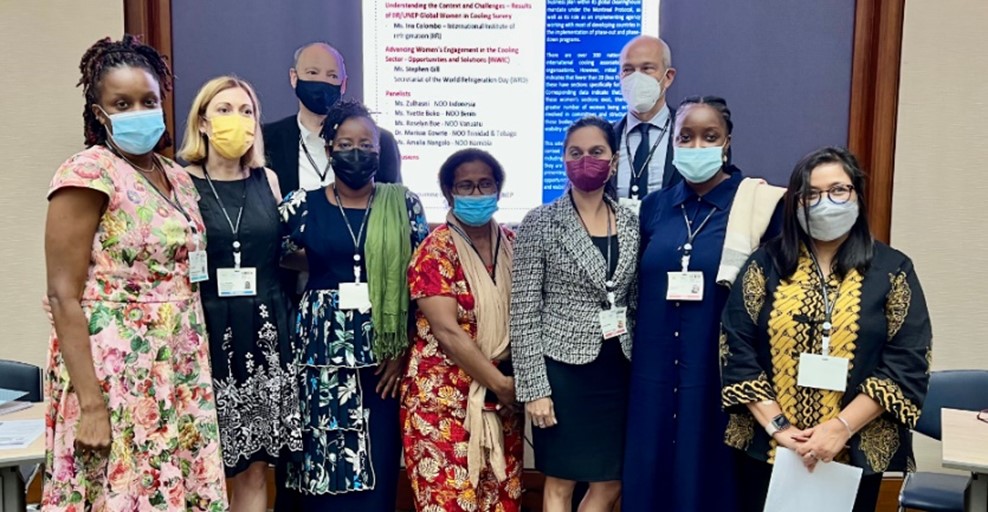
Partnership for Solutions: International Network of Women in Cooling
The International Network of Women in Cooling (INWIC) is a networking, educational and mentoring platform to promote the role of women in the refrigeration, air-conditioning and heat pump industry. This recently launched initiative will connect women currently working in the sector, empowering them to progress in their career and to become visible role models, changing outdated perceptions and influencing the next generation of women engineers.
World Refrigeration Day (WRD) and the UNEP OzonAction lead the INWIC initiative in cooperation with founding partners’ i.e. national RACHP associations from all world regions. By bringing together women from all continents, INWIC enables the sharing of experiences, successful local policies and career opportunities, which would not be available otherwise. It provides an opportunity to learn from each other, understand how to bring positive change in each cultural context and promote the environmental aspect of the RACHP profession. Figure 5 summarises the INWIC proposed eight work streams for the next two years.

The first stage of INWIC initiatives includes connecting existing women’s groups/sections of national, and international RACHP associations/organisations/institutions to create a network that shares information and experiences. INWIC will pull together data from founding partners to raise awareness and motivation and to promote role models and outreach activities underway. A mentorship program will be developed for women already working in RACHP and for young women pursuing RACHP education. On a later stage, INWIC will establish an internship programme with focus on opportunities in developing countries and will carry out international, regional and national events. It is envisaged that the network will accelerate gender equality in RACHP, allowing women to be agents of change for a more sustainable and resilient future.
About the Authors
Catarina Marques is a Senior Research Fellow at London South Bank University and the president of the IIR Working Group on Careers in Refrigeration (CaRe)
Ina Colombo is the International Institute of Refrigeration deputy director general and secretary of the IIR Working Group on Careers in Refrigeration (CaRe)
Sonja Wagner is a Programme Management Officer at OzonAction United Nations Environment Programme.
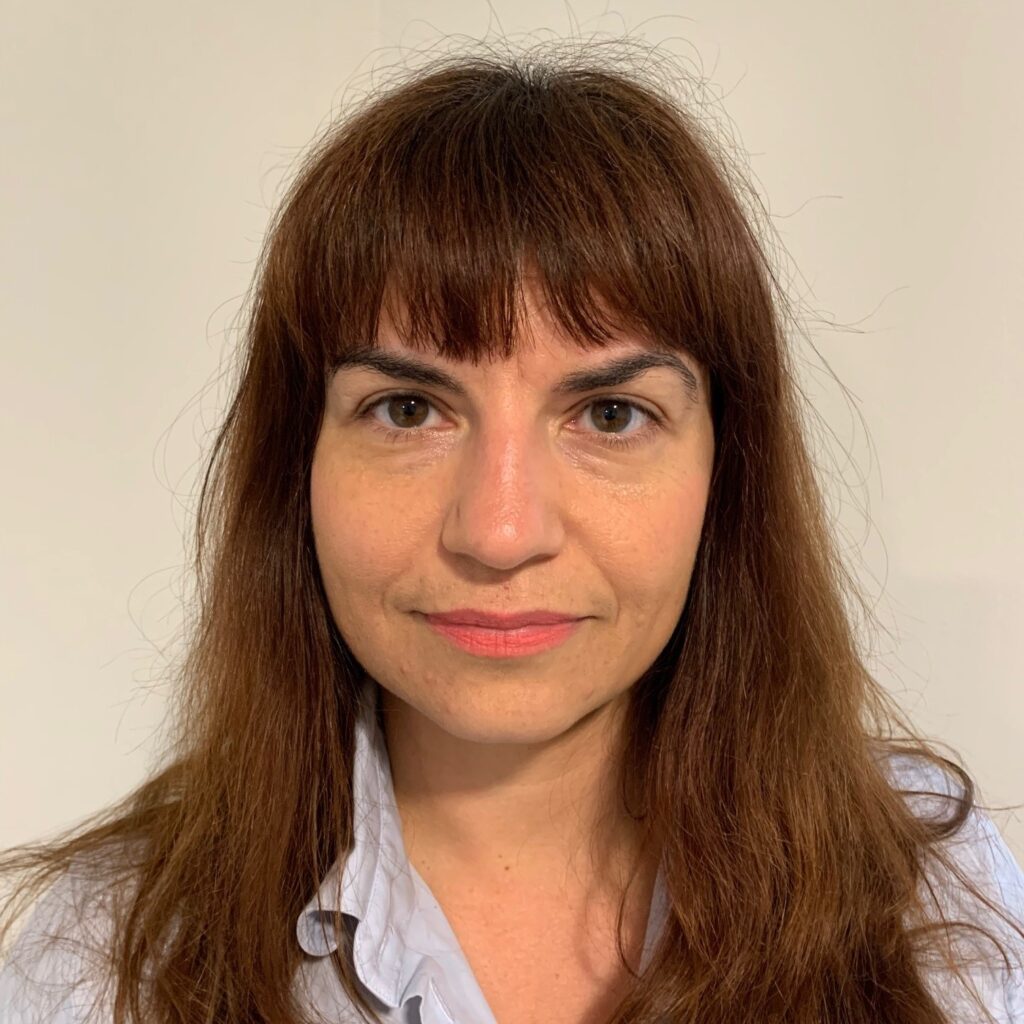
Catarina Marques
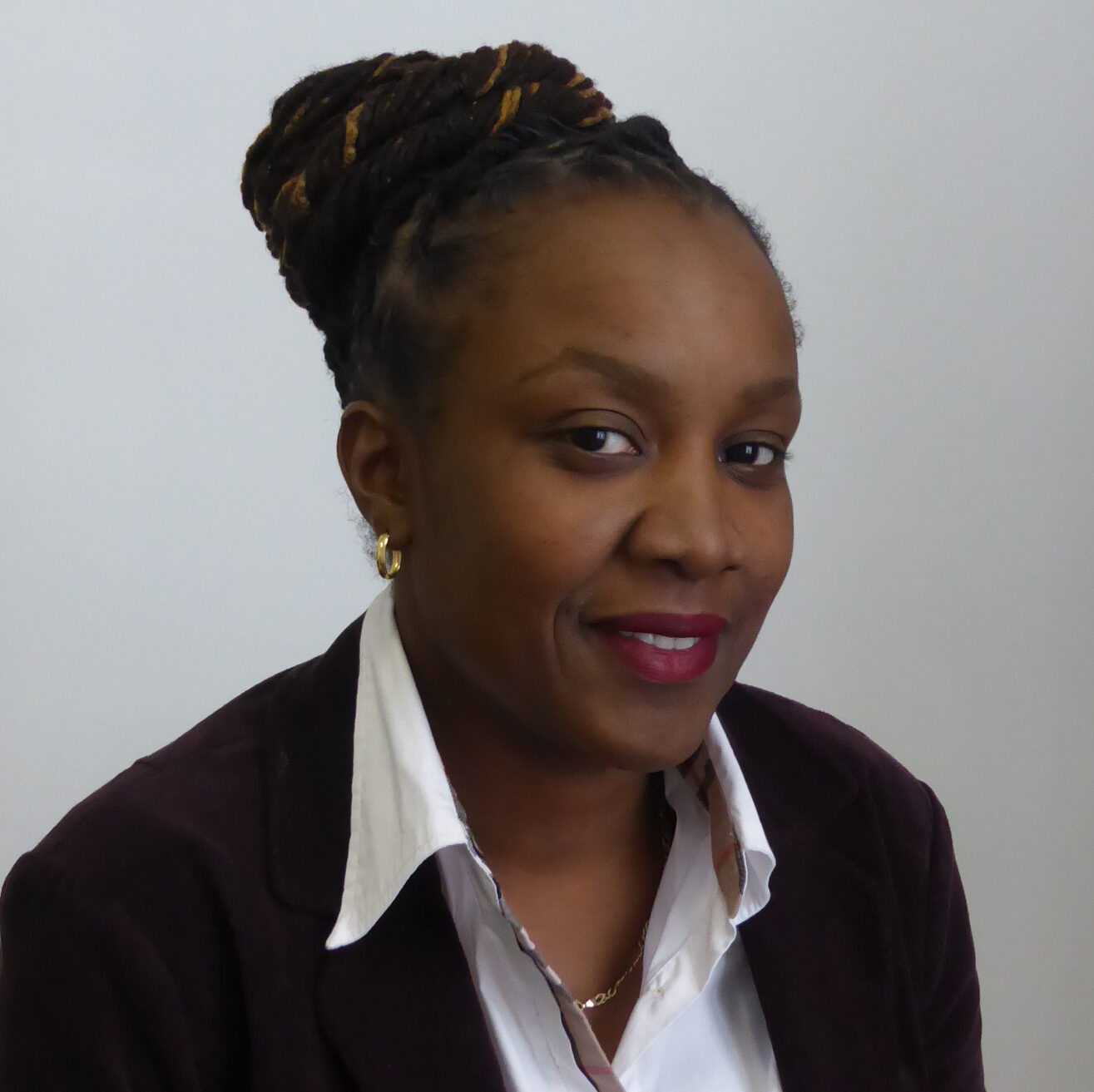
Ina Colombo
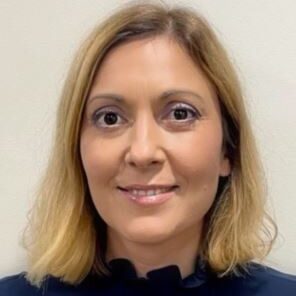
Sonja Wagner
[1] Women in the Refrigeration and Air-conditioning Industry – Personal Experiences and Achievements | Ozonaction (unep.org)
[2] Promoting gender mainstreaming through Montreal Protocol activities | Ozonaction (unep.org)
[3] World Refrigeration Day 2021 – OzonAction Webinars | Ozonaction (unep.org)
[4]Importance of Women in Cooling Sector Highlighted at Montreal Protocol Side Event | Ozonaction (unep.org)
